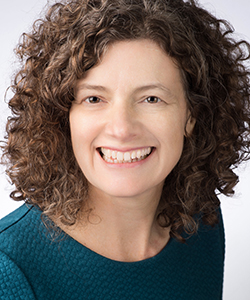I didn’t realize until recently that people use the term wine literacy — that is, being able to talk knowledgeably about the fundamentals of wine or being able to read a wine. The idea makes sense for talking about a field where there are experts and then there are people who buy bottles based on how pretty the labels are.
It’s common to hear the terms financial literacy, computer literacy, social literacy, and many others. While Eric Celeste explores what literacy means for educators and its implications for professional learning (see p. 10), I’ve been thinking about what would constitute professional learning literacy. What does an educator have to know to be considered literate in professional learning? And what does he or she have to know to be considered an expert?
At Learning Forward, the fundamentals always start with the Standards for Professional Learning. We do it on p. 8 when we draw connections between the standards and the role content has in professional learning. We dove into the standards in the February issue of JSD. We consider them whenever we approach a particular topic.
And is that where professional learning literacy starts? Or is there a more fundamental set of concepts, perhaps contained within the standards — really elementary ideas that are the first things a professional learning novice picks up. If I had to start a professional learning ABCs, I might start with these ideas and build from there.
Educators don’t know everything they need to know when they graduate from college or obtain their teaching certificates. Just as professionals in any field need to continue to grow throughout their careers, so do educators. What we know about students and learning increases, what we expect from educators changes, and the world continues to evolve in ways we can’t anticipate.
All learners are not alike. All adults don’t have the same needs or learn in the same ways as each other. At the same time, all adults don’t have the same needs or learn in the same ways as students. Adults at any stage of their career have expertise and prior knowledge to inform their ongoing growth.
Practice makes perfect. Gaining awareness of a new strategy or new content doesn’t change what educators do in classrooms. Sustained opportunities to investigate ideas over time, consider multiple contexts, and practice with colleagues and students leads to real application of learning.
Collaboration amplifies learning. Given the wide range of expertise in every school, colleagues benefit from frequent opportunities to talk, observe one another, share successes and challenges, and intentionally problem solve and gain new knowledge.
Professional learning is tied to student learning. If educators aren’t engaged in learning that helps them change and grow in ways that ultimately help their students change and grow, they are wasting precious time and resources.
Maybe for some stakeholders, being professional learning literate is enough. If parents and community members knew these ABCs, they’d understand the importance of supporting, for example, time for teams to meet, or for sustaining funds to keep coaches in schools. For others, the basics are just a first step on the way to expertise as they become learning leaders responsible for planning and sustaining meaningful learning across a building or district.

Tracy Crow served as chief strategy officer for Learning Forward.
Recent Issues
WHERE TECHNOLOGY CAN TAKE US
April 2024
Technology is both a topic and a tool for professional learning. This...
EVALUATING PROFESSIONAL LEARNING
February 2024
How do you know your professional learning is working? This issue digs...
TAKING THE NEXT STEP
December 2023
Professional learning can open up new roles and challenges and help...
REACHING ALL LEARNERS
October 2023
Both special education and general education teachers need support to help...







